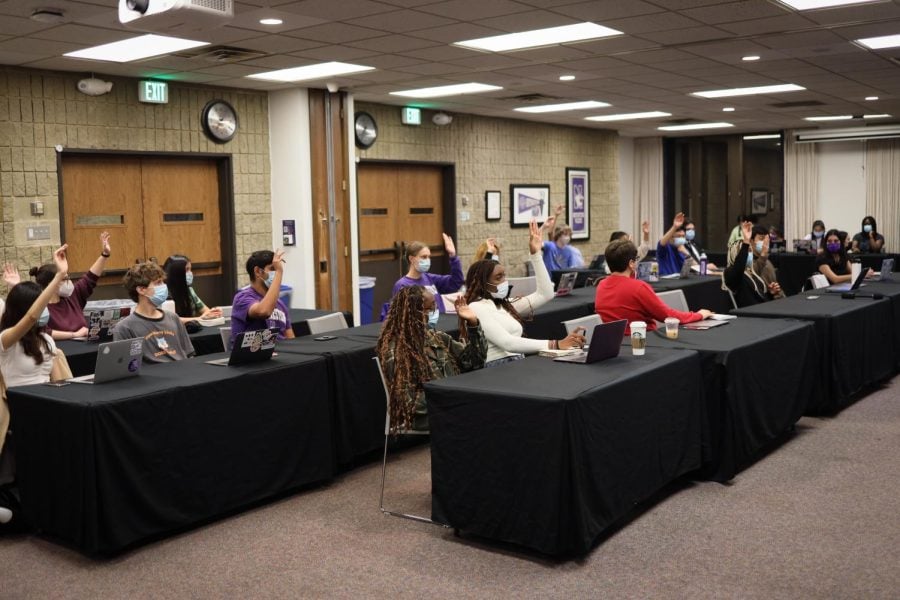ASG passes resolution demanding mandatory virtual alternatives to in-person instruction
ASG Senate meets in-person during Fall Quarter. The Senate passed a resolution Wednesday to mandate virtual options to in-person learning.
January 19, 2022
With high COVID-19 cases and student pushback against in-person classes, Associated Student Government approved a resolution Wednesday to require hybrid alternatives to in-person learning.
The resolution asks administration to require professors to offer virtual alternatives, excuse any absences due to COVID-19 and clearly state COVID-19 policies for students who test positive in syllabi. Hillel Senator Dalia Segal-Miller, who co-authored the resolution, said it supports both students petitioning for the extension of virtual classes and those happy with in-person classes. The SESP sophomore said the resolution would help increase transparency and give students a “support system” if they test positive.
According to the resolution, there isn’t a cohesive system in place explaining what students should do if forced to quarantine. While the University has recommended professors provide virtual options, it is not mandatory to do so.
SESP Senator and sophomore Armaan Ajani, a co-sponsor of the legislation, said he saw a need for these policies last quarter. Even though positive cases were lower, he said students were missing class due to COVID-19. He added that hybrid options help with the “moral dilemma” of whether to attend class when symptomatic, as COVID-19 can be easily mistaken for the common cold.
“If you have the ability to make learning more accessible, why wouldn’t you use it?” Ajani asked.
Rainbow Alliance Senator and Weinberg sophomore Hannah Travali-Peacock said she reached out to Segal-Miller and co-authored the resolution to emphasize supporting students who don’t feel comfortable returning in person — especially those who are immunocompromised and at high-risk.
Travali-Peacock, a high-risk student, said only some of her professors are allowing her to remain online for a few weeks. She said she understands that students are happy to return in person, but she and other high-risk friends don’t feel this way due to increased cases from fall.
“It is important that the University has a larger policy that is inclusive for all students and has support for all students,” Travali-Peacock said. “Because right now, it’s kind of just cherry-picking which departments and which teachers are doing what, and that doesn’t provide consistent support.”
ASG’s Academics Committee released a letter to faculty at the start of the quarter recommending adding hybrid accommodations, creating more lenient attendance policies and outlining a COVID-19 contingency plan.
However, Segal-Miller said it’s important to have a resolution put forward by the ASG Senate.
“I think showing support through Senate — having something voted on by representatives who are representing the entire student body from every school and all these different student groups — shows the administration that this is a very widespread, very supported addition to requirements and accommodations for students right now,” Segal-Miller said.
Email: [email protected]
Twitter: @EmmaCRosenbaum
Related Stories:
— ASG Academics Committee recommends NU modify attendance policies amid COVID-19 case surge
— Students protest, petition against decision to return to in-person learning Tuesday
— ASG passes resolution supporting the reinstatement of Credit/No Credit policy












